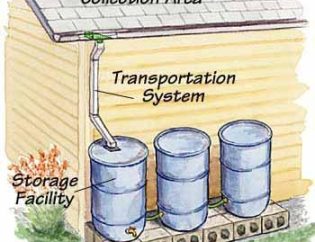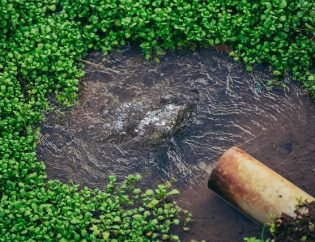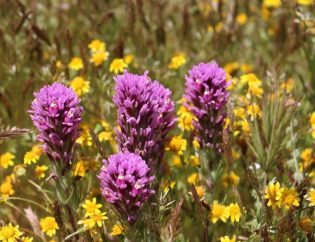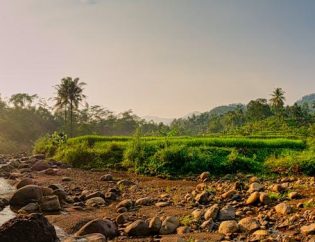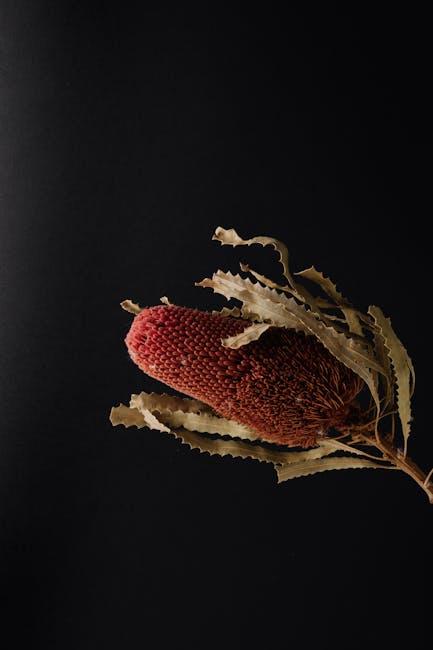
Maximizing Water Efficiency with Drought-Tolerant Native Plants
Are you tired of watching your precious water supply go down the drain? Well, fear not, because we have the perfect solution for you – drought-tolerant native plants!
By incorporating these resilient beauties into your landscaping, you can reduce your water usage significantly, saving both the environment and your wallet. Plus, they require minimal maintenance, so you can spend less time watering and more time enjoying your yard.
Not sure where to start? Here are some of our favorite drought-tolerant native plants that are sure to thrive in your garden:
- California Poppy: This vibrant orange flower adds a pop of color to any landscape and can survive with very little water.
- Manzanita: With its unique twisted branches and delicate blooms, this shrub is a showstopper that requires little to no irrigation.
- Agave: A striking succulent that is perfect for adding a touch of desert flair to your garden. Plus, it thrives in dry conditions.
- Yarrow: This versatile plant comes in a variety of colors and can handle drought conditions with ease.

Innovative Rainwater Harvesting Techniques for Your Garden
So you want to save water and make your garden more eco-friendly? Look no further! We have some innovative rainwater harvesting techniques that will have your plants singing in the rain (literally).
Have you heard of rain barrels? They’re like big buckets that collect rainwater from your roof through a downspout – genius, right? You can then use this water to hydrate your thirsty plants instead of wasting precious H2O from the tap.
If you’re feeling extra fancy, you can install a rain chain to guide rainwater straight into your garden. It’s like a fun water feature for your home and a practical way to conserve water at the same time. Plus, your plants will love the gentle, natural flow of rainwater rather than a harsh hose spray.
Looking for a hands-off approach? Consider a rain garden – a sunken area filled with native plants that soak up rainwater like a sponge. It not only helps prevent flooding and erosion but also provides a home for beneficial insects and wildlife. Talk about multitasking!

Installing Smart Irrigation Systems for Sustainable Water Use
So you’ve decided to take the plunge and install a smart irrigation system for your garden or lawn. Congratulations! You’re about to enter the world of sustainable water use and never look back. But before you get started, here are a few things to keep in mind:
First off, make sure you have a reliable Wi-Fi connection in your outdoor space. After all, you can’t have smart irrigation without a smart connection! Once that’s sorted, you’ll need to pick the right system for your needs. Do you want one that adjusts watering schedules based on weather conditions, soil moisture levels, or plant type? The possibilities are endless!
Next, it’s time to get your hands dirty and actually install the system. Don’t worry, it’s not as complicated as it sounds. Just follow the instructions provided with the system, and you’ll be a smart irrigation pro in no time. And hey, if all else fails, there’s always YouTube tutorials to save the day!
Once you have everything set up and running smoothly, sit back and relax as your plants get the perfect amount of water with minimal effort on your part. You’ll be saving water, saving time, and saving the planet – all while enjoying a lush and healthy garden. Who knew being eco-friendly could be so easy?
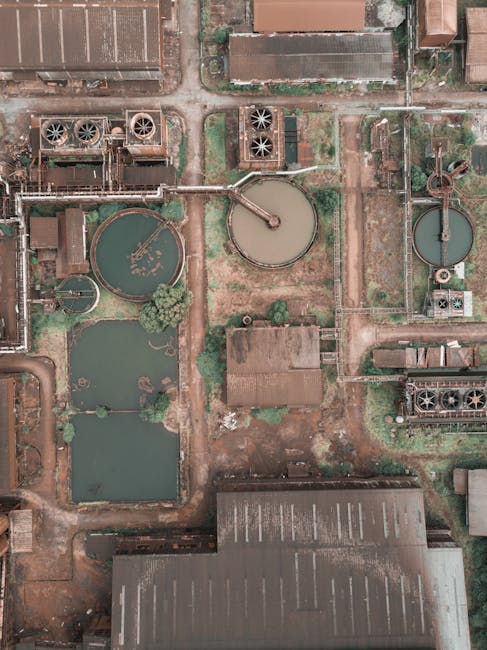
Transforming Outdoor Spaces with Eco-Friendly Hardscaping
Are you tired of boring, traditional outdoor spaces that lack personality? Say goodbye to plain old concrete and hello to eco-friendly hardscaping options that can transform your yard into a stunning oasis.
With a wide variety of sustainable materials available, you can create a unique and environmentally conscious outdoor space that showcases your personality. From recycled glass pavers to natural stone walkways, there are endless options to choose from to bring your vision to life.
Not only will eco-friendly hardscaping add beauty to your outdoor space, but it will also help to reduce your carbon footprint. By using materials like permeable pavers that allow water to seep through, you can prevent runoff and erosion, while also helping to keep your yard healthier and more vibrant. And let’s face it, who doesn’t want to help save the planet while beautifying their home?
So, whether you’re looking to add a trendy new patio, a stylish fire pit, or a charming garden pathway, consider incorporating eco-friendly hardscaping materials into your outdoor design. Not only will you be adding value and beauty to your home, but you’ll also be doing your part to protect our planet. Plus, you’ll have the coolest yard on the block – what’s not to love?

Energy-Efficient Landscape Lighting: Illuminating with Solar Power
Looking to light up your landscape without increasing your electricity bill? Solar-powered landscape lighting is the answer to all your illuminating needs! Say goodbye to high energy costs and hello to sustainable, eco-friendly lighting solutions.
With solar-powered lights, you can enjoy a beautifully lit garden or backyard without worrying about running up your energy bill. These lights harness the power of the sun during the day, storing up energy to illuminate your outdoor space at night. It’s like having your own personal sunlight storage system!
Not only are solar-powered lights cost-effective, but they’re also easy to install. No need to worry about digging trenches for wiring or hiring an electrician. Simply stake the lights into the ground and let the sun do the rest. It’s the perfect DIY project for those who want to add a touch of ambiance to their outdoor space.
Illuminate your landscape with the power of the sun and watch as your garden comes to life after dark. With solar-powered landscape lighting, you can turn your outdoor space into a magical wonderland that’s not only energy-efficient but also environmentally friendly. So why wait? Light up your landscape with solar power today!
Promoting Biodiversity Through Pollinator-Friendly Gardens
Creating a pollinator-friendly garden is not only beneficial for the environment but also a great way to attract all sorts of buzzing and fluttering friends to your yard. By planting a variety of flowers and plants that attract pollinators like bees, butterflies, and hummingbirds, you are helping to promote biodiversity and support the ecosystem.
So how can you make your garden a hotspot for pollinators? Here are some tips:
- Choose native plants that are known to attract pollinators
- Plant flowers with different shapes and colors to appeal to a variety of pollinators
- Avoid using pesticides and chemicals that can harm pollinators
- Provide water sources like birdbaths or shallow dishes for butterflies and bees to drink from
Not only will a pollinator-friendly garden bring life and color to your yard, but it will also help to support the local ecosystem and encourage biodiversity. So put on your gardening gloves, grab your shovel, and get ready to welcome all sorts of buzzing and fluttering visitors to your garden!
Utilizing Organic Mulches for Soil Health and Water Conservation
Looking to spruce up your garden while also saving water and improving soil health? Look no further than organic mulches! These magical materials not only make your garden look beautiful but also work wonders for conserving water and nourishing your soil.
So, what exactly are organic mulches? Think of them as the superhero capes of the gardening world – they come in various forms such as grass clippings, leaves, straw, and wood chips, and they protect your soil from the harsh elements, all while adding valuable nutrients back into the earth.
By utilizing organic mulches, you are essentially creating a cozy blanket for your soil, shielding it from water evaporation, erosion, and temperature fluctuations. Not only that, but these materials gradually decompose over time, releasing essential nutrients into the soil and promoting the growth of beneficial microorganisms.
In addition to their practical benefits, organic mulches also add a touch of beauty to your garden, giving it that finishing touch that will have your neighbors green with envy (pun intended). So, ditch the synthetic stuff and opt for organic mulches – your soil and your water bill will thank you!
FAQs
Why should I consider implementing green solutions in my San Diego home landscape?
Because who doesn’t want to be the envy of their neighbors with a lush, eco-friendly oasis right in their own backyard?
What are some easy green solutions I can incorporate into my landscape?
Well, you could start by planting drought-tolerant plants that require less water than your high-maintenance ex. Plus, they’ll make your yard look like a scene straight out of a botanical garden.
How can I save water in my landscape without sacrificing the beauty of my yard?
You can install a drip irrigation system that targets the roots of your plants directly, or you can just stand out there with a hose pretending you’re a human sprinkler – your call.
Are there any benefits to using native plants in my San Diego landscape?
Absolutely! Native plants are like the cool kids of the plant world – they’re already adapted to the San Diego climate, so they require less water, fertilizer, AND they attract all the local wildlife to your yard.
What are some creative ways to incorporate sustainable practices into my landscape design?
You could try installing a rain barrel to collect rainwater for your plants, creating a compost bin for all your leftover food scraps, or even just going outside and whispering sweet nothings to your plants to boost their morale – that’ll show Mother Nature you mean business.
In conclusion: Go Green or Go Home!
Thanks for tuning in to learn about eco-friendly landscaping solutions for your San Diego home. With a little creativity and some green thumbs, you can transform your outdoor space into a sustainable oasis that benefits both the environment and your wallet. So ditch the chemicals, embrace the native plants, and let your garden flourish in all its green glory. Remember, a little care for the Earth today means a brighter future for tomorrow! Happy gardening, fellow environmental enthusiasts!

